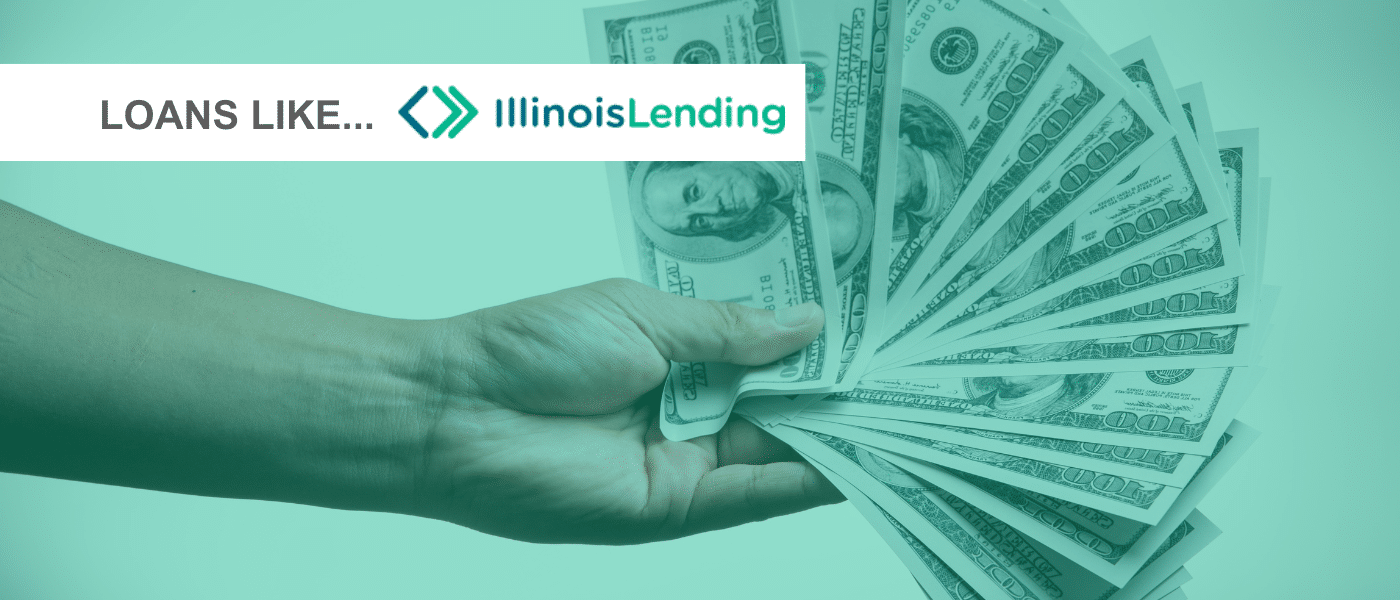A payday loan vs. cash advance are both ways for people to borrow money from their next paycheck. A payday loan is essentially one type of cash advance. Other types of cash advances include credit card advances, employer advances, and other types of payday advances.
Fast cash options may seem convenient, but they often come with unexpected terms that can leave borrowers in more debt. Here, you’ll learn about cash advances and payday loans, as well as other financial options available to help you get by until your next payday!
A Quick Comparison of Cash Advances and Payday Loans
| Feature | Payday Loans | Cash Advances |
| Typical Loan Amount | $50 – $1,000 | Up to a percentage of your credit limit |
| Application Requirements | Proof of income, bank account, ID | Credit card in good standing, ID |
| Accessibility | In-person, online | ATM, bank withdrawal, checks |
| Repayment Frequency | Lump sum on next payday | Minimum monthly payments or full amount |
| Interest-Free Period | None | Typically none, but varies by credit card |
| Annual Percentage Rate (APR) | Often 300% – 400% or more | Typically 25% – 30% for credit card advances |
| Financial Counseling Services | Rarely offered by lenders | Some credit card companies offer financial guidance |
| Rollover Options | Allowed in some states, with fees | Not applicable, but can lead to debt cycle if not managed |
| Impact on Credit Line | No direct impact unless defaulted | Reduces available credit and may increase utilization ratio |
| Regulation | State-regulated, varies widely | Federally regulated under the Credit CARD Act of 2009 |
| Late Payment Penalties | High fees, possible bank overdraft fees | Additional interest, late fees, credit score impact |
Disclaimer: The information provided in the comparison chart above is intended for general informational purposes only and does not constitute financial advice. The details presented are based on typical scenarios and may not reflect the terms, conditions, fees, or APRs you may be offered by a lender or credit card issuer. Payday loans and cash advances can have varying terms based on the lender, your financial situation, and the laws of the state or country you reside in.
What Is a Payday Loan?
Payday loans are a form of funding that comes with high-interest rates and short payback terms. According to the U.S. Consumer Financial Protection Bureau, about 4.4% of Americans have taken out a payday loan in the past six months.1 Unlike a traditional personal loan, payday loans typically come with brief payback terms of about two weeks or less. That’s one of the biggest differences between personal loans vs. payday loans. Borrowers who fail to pay back their entire loan within this short time are then hit with high interest rates, making their loans even more difficult to pay off.
Many payday lenders are considered predatory because they often advertise their high-interest loans to low-income individuals. Because payday loans cost so much, it may not be the best choice to use this kind of loan for paying off debts.
What Is a Cash Advance?
Cash advance loans are when a borrower requests or withdraws cash, which they later pay back with interest. The interest rate on a cash advance will depend on the borrowers’ credit score, financial history, as well as the source of their cash advance. For example, payday advances from a credit card company may carry higher interest rates than a cash advance from an employer.
Types of Cash Advances
Borrowers may access payday advances via credit card accounts, cash advance apps, or their employer. It is more common for consumers to turn to credit cards or apps for payday advances, as employer advances should be reserved for emergency situations only.
Credit Card Cash Advance
Borrowers who have a personal line of credit may take out credit card cash advances, usually up to $1,000, within a 24-hour period. Keep in mind that credit card cash advances often come with higher interest rates than regular credit card purchases.
Cash Advance App
Cash advance applications, similar to payday loans, are meant to give borrowers access to quick cash while they are in between paychecks. Some popular cash advance apps are:
- Bright – offers a $50 loan instant app with advances up to $250 deposited in one business day.
- Chime – offers advances from $20-$200 deposited instantly.
- Dave – offers advances up to $500 deposited in one to three business days. You can also pay a fee for a one-hour deposit.
- Earnin – offers advances from $100-$500 deposited in three business days. You can also pay a cash advance fee for a quicker deposit.
- Empower – offers advances from $10-$250 deposited in one business day.
- MoneyLion – offers advances from $25-$250 deposited in one to two business days. You can also pay an additional cash advance fee for an instant deposit.
Employer Cash Advance
People can also request payday advances from their employers. Employees should only request a paycheck cash advance if they are dealing with an emergency situation where no other financial solution is available. It is also up to the employer’s discretion if they want to grant a cash advance, regardless of the credit score or financial history of the employee.
Which Is Better? Credit Card Cash Advances or Payday Loans?
When deciding which kind of loan is best for you, think about how each form of funding will affect your credit score.
Debt-to-Income Ratio and Credit Utilization
Both payday loans and advances are going to affect your debt-to-income ratio. Depending on the credit scoring model used by any of the three credit bureaus, these types of funding may affect your credit utilization ratio as well.
Your debt-to-income ratio refers to how much debt you have compared to how much income you bring in. Debts like credit card purchases, personal loans, home equity loans, and student loans are all used to calculate your debt-to-income ratio.
Your credit utilization refers to how much available credit you have compared to how much you are currently using. Some credit scoring models only consider revolving lines of credit when calculating a borrower’s credit utilization, but other models include loans, mortgages, and even your bank account balance in addition to credit card debt.
The Mix of Credit Accounts
Your different credit accounts can typically be broken up into two general categories: good debt and bad debt. Good debt refers to loans and financial expenditures that offer the borrower something other than funding. In other words, the borrower is getting more than just a loan. Some examples of good debt are student loans and mortgages. With student loans, the borrower is acquiring an education/degree along with their loan. With mortgages, the borrower is acquiring a home or piece of property in addition to their funding.
Bad debt refers to loans that offer the borrower nothing but funding. Payday loans and cash advances will usually fall into the bad debt category. Since borrowers usually seek out payday loans and payday advances in order to catch up on their finances, they are essentially just digging themselves into a hole of debt.
Hard Credit Inquiries
Every time you fill out an application for a loan, credit card, or other financial product, lenders will perform a hard credit check. Hard credit reports come from one of the three major credit bureaus and are the most efficient way for lenders to get a summary of your current financial situation. Credit bureaus keep track of hard credit inquiries and may dock a consumer’s credit score around five points every time they receive an official request.
If you decide to go with payday lending, keep in mind that your payday lender will most likely request an official credit report before granting approval. Cash advances, on the other hand, will not result in a hard credit check if borrowers are accessing the advance from their current credit card account.
How To Pay off Cash Advances or Payday Loan Debt Faster
If you have already locked yourself into a payday loan or cash advance, the best way to get out of the situation is to simply pay off your balance. Then moving forward, you will know to search for better options.
In the meantime, you can take advantage of the following tips to help pay off your debt faster. These tips will also work for debts like:
- Credit card balance.
- Past due loans or bills.
- Student loans.
- Car title loans or auto title pawns.
- Bank loans.
- Personal installment loans.
Pay More Than the Minimum Amount Due
One of the most efficient ways to pay off debt faster is to contribute more than your minimum amount due each month. Interest rate charges are often based on the current balance on a loan, so the more you chip away at your balance, the less funding there is to charge interest on!
Avoid New Credit Applications
While you are paying off your debt, avoid applying for new lines of credit. Focus on eliminating your existing debt before you acquire any new balances.
Important! What To Do Before Applying for a Short-term Payday Loan or Cash Advance
Before you lock yourself into multiple payday loans or advances, consider the alternatives first!
Credit Counseling
Before your debt gets too out of hand, try working with a financial advisor or credit counseling agency. They may be able to give you tips on how you can create a budget or reorganize an existing budget to fit your financial needs.
Negotiate Debt
It may be possible to work with your various debtors and negotiate a debt settlement or management plan. While debt settlement will eradicate your debt, your credit score will also take a significant hit. Debt management, on the other hand, could involve a loan rollover, refinancing, or other solution that won’t harm your credit as much as a settlement plan.
You can also negotiate credit card debt by talking to a customer service agent and seeing what they can do for you. Sometimes simply calling and inquiring about current promotions is enough to get you some discounts or added perks.
Try Debt Consolidation
Instead of turning to income advances and payday loans, try a debt consolidation loan. With a debt consolidation loan, you can combine your existing debts and balance into one easy monthly payment. Depending on your credit score, you may even be able to get additional funding you can use the same day.
Debt consolidation loans are available with a bank or credit union, as well as private direct lenders.
Explore Local Resources
There are many community and government funding programs available to help low-income families in need. You can check with your local government’s website to see what state and federal assistance programs you may qualify for.
Request Payment Extensions
If you are thinking of taking out a payday loan or cash advance to catch up on a bill, try talking to the provider directly first to see if they can give you an extension. Lenders are often willing to adjust terms and work with borrowers if it means preventing them from defaulting on their loans!
FAQ: Borrowing Money With a Cash Advance vs. Payday Loan
A payday loan will often have fees based on the amount borrowed, while other advances may include a flat fee or a percentage of the cash advance amount.
A payday loan typically requires repayment by the borrower’s next payday, whereas a credit card cash advance terms can vary based on your credit agreement or employer policies.
Some payday lenders and credit card cash advance services may allow extensions, but they could come with additional fees and a higher interest rate. Keep in mind that extending your terms may significantly increase your cash advance or payday loan debt.
Yes, many states have regulations that limit the interest rates, fees, and terms of payday loans and cash advances. It’s important to check the laws in your state.
A payday loan does not usually require a credit check, so it may not affect your credit score unless you fail to repay. Cash advances can affect your credit score if they are not repaid, as they are typically associated with your credit card account.
Failure to repay can lead to increased fees and interest, collection efforts, and negative impacts on your credit score.
Alternatives include personal loans, borrowing from friends or family, or seeking funds from community programs or non-profits.
Payday loans usually require proof of income and a bank account, while cash advances are typically accessed through your existing credit card without an additional application process.
This depends on the lender’s policies and state regulations, but it is generally not advisable due to the risk of debt accumulation.
Consider factors like the amount of money you need, the fees and interest rates, how quickly you can repay the loan, and the potential impact on your credit score.
A Quick Word From CreditNinja About Cash Advances and Payday Loans
CreditNinja emphasizes the importance of being fully informed before making financial decisions. We encourage borrowers to research and compare their loan options, understanding the terms and potential impacts on their financial health, prior to submitting any credit application. Our commitment is to empower consumers with knowledge and tools to choose the credit solutions that best fit their needs, ensuring they are making choices with confidence and clarity.
Ready to learn more about budgeting, handling your finances, and more? Check out the CreditNinja dojo for hundreds of free resources!
References:
1. Consumer use of payday, auto title, and pawn loans: Insights from the Making Ends Meet Survey | Consumer Financial Protection Bureau
2. Cash Advance Vs Payday Loan: What’s The Difference? | Forbes Advisor
3. Is a Credit Card Cash Advance Better Than a Payday Loan? | Personal Loans and Advice | U.S. News






